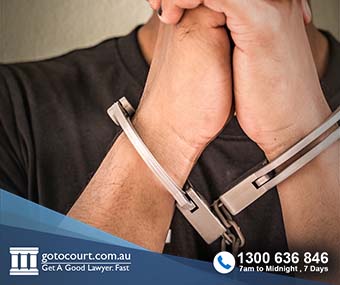Bail Applications in the Children’s Court in Tasmania
Bail Applications in the Children’s Court in Tasmania
When a person is arrested in relation to offences in Tasmania, they will either be granted bail or remanded in custody. When a young person is arrested, the same general rules and procedures for bail and remand apply as for adults, with some extra requirements imposed under the Youth Justice Act 1997. This page deals with bail applications in the Children’s Court in Tasmania, what bail conditions can be imposed and what happens when a young person breaches their bail.
When is a person granted bail?
A person may be granted bail by the police following their arrest and charges being laid. If the police do not grant bail, bail may be granted by a court. If bail is refused by a magistrate, an appeal can be made to the Supreme Court within 21 days of the magistrate’s decision (Bail Act, section 24A).
When deciding whether to grant a person bail, the court will consider the following factors:
- Whether they are likely to attend court to finalise their charges;
- Whether they are likely to re-offend while on bail;
- Whether they pose a risk to the alleged victim or the general community if released;
- Whether they are likely to comply with any bail conditions imposed;
- Whether they are likely to interfere with witnesses or other evidence if released;
- The length of time they are likely to spend in custody if not granted bail;
- The penalty they are likely to receive if found guilty.
Bail conditions
When a young person is placed on bail, conditions may be imposed. These may include that the young person must attend school, not consume alcohol or drugs or abide by a curfew. It is also common for a bail condition to be imposed prohibiting the young person from having contact with alleged co-offenders.
When a young person is placed on bail, the court must have regard to the general principles of youth justice when determining the appropriate bail conditions to impose. These principles are set out in section 5 of the Youth Justice Act 1997 and include that the youth should be dealt with in a way that encourages them to take responsibility for their behaviour and that the community is to be protected from illegal behaviour.
In some cases, the court may grant a young person bail on the condition that another person provides a surety. A surety is an amount of money or other property that is forfeited if the person on bail breaches the conditions of their bail.
Breaches of bail conditions
If a young person breaches the conditions of their bail, they may be arrested and their bail suspended. The court may then restore their bail, revoke their bail and remand them in custody or revoke their bail and order fresh bail.
The fact that a young person breached their bail conditions may be taken into account when they are sentenced. However, a breach of bail by a young person does not amount to an offence as it does when committed by an adult.
Remand of a young person
If a young person is refused bail by the police, they must be held at a watch house until they can be brought before a court and given the opportunity to apply for bail.
If a youth who is under 19 is refused bail by a court, they must be remanded in a youth detention centre if practicable and in a prison, if it is not practicable to detain them in a youth detention centre. If a youth is remanded in a prison, they must be kept separate from adult prisoners.
A young person who is remanded will remain in detention until their matter is finalised, or until a court grants them bail. If they are sentenced to a term of detention, their sentence will be backdated to take into account the time they have spent in detention on remand.
If you require legal advice or representation in any legal matter, please contact Go To Court Lawyers.

Affordable Lawyers
Our Go To Court Lawyers will assist you in all areas of law. We specialise in providing legal advice urgently – at the time when you need it most. If you need a lawyer right now, today, we can help you – no matter where you are in Australia.How It Works




1. You speak directly to a lawyer
When you call the Go To Court Legal Hotline, you will be connected directly to a lawyer, every time.

2. Get your legal situation assessed
We determine the best way forward in your legal matter, free of charge. If you want to go ahead and book a face-to-face appointment, we will connect you with a specialist in your local area.

3. We arrange everything as needed
If you want to go ahead and book a fact-to-face appointment, we will connect you with a specialist in your local area no matter where you are and even at very short notice.






















